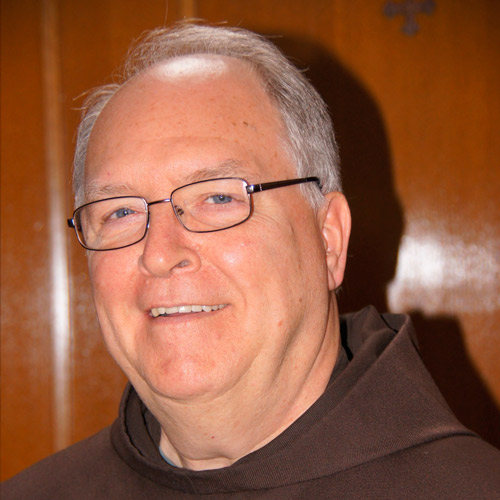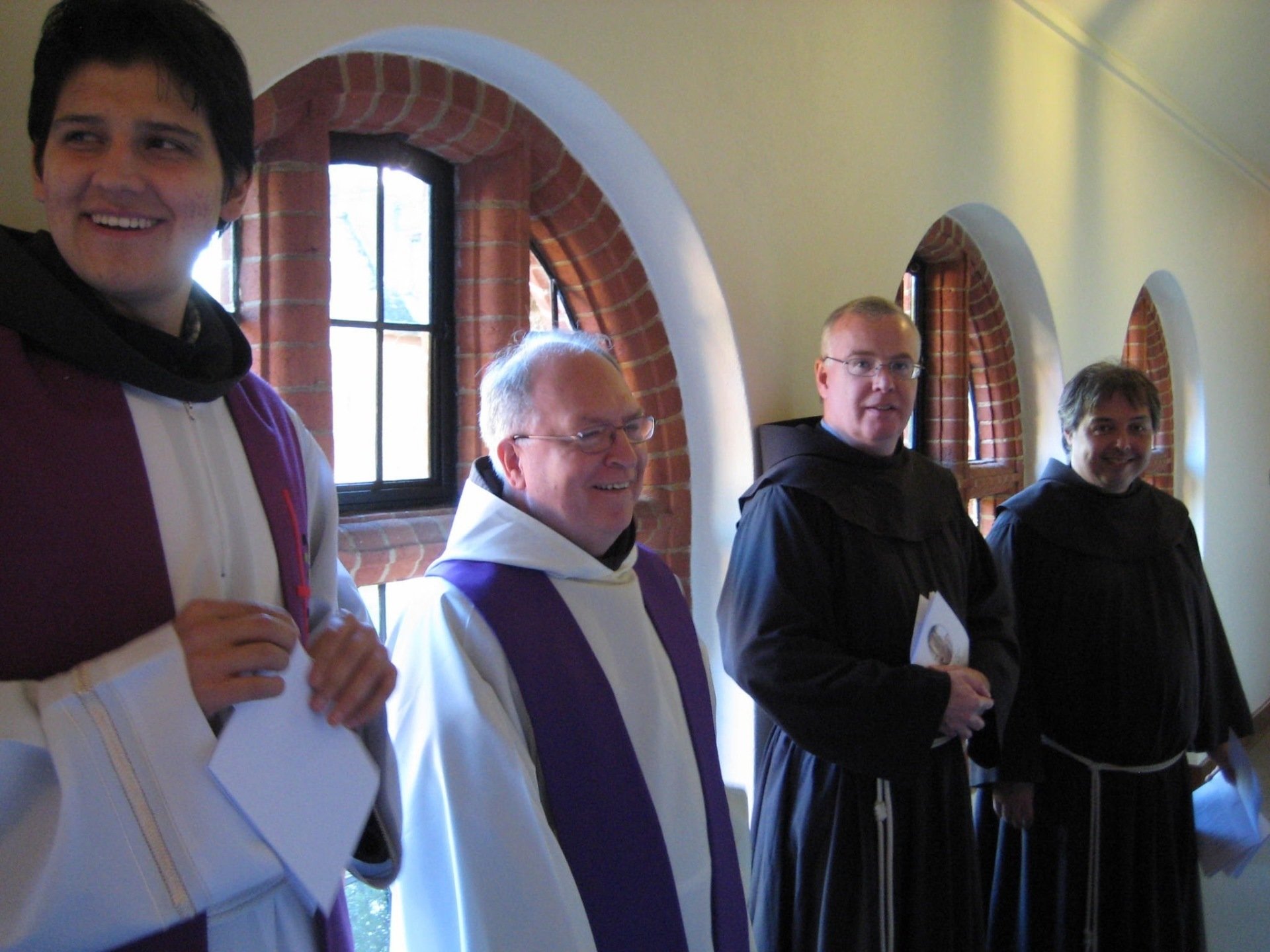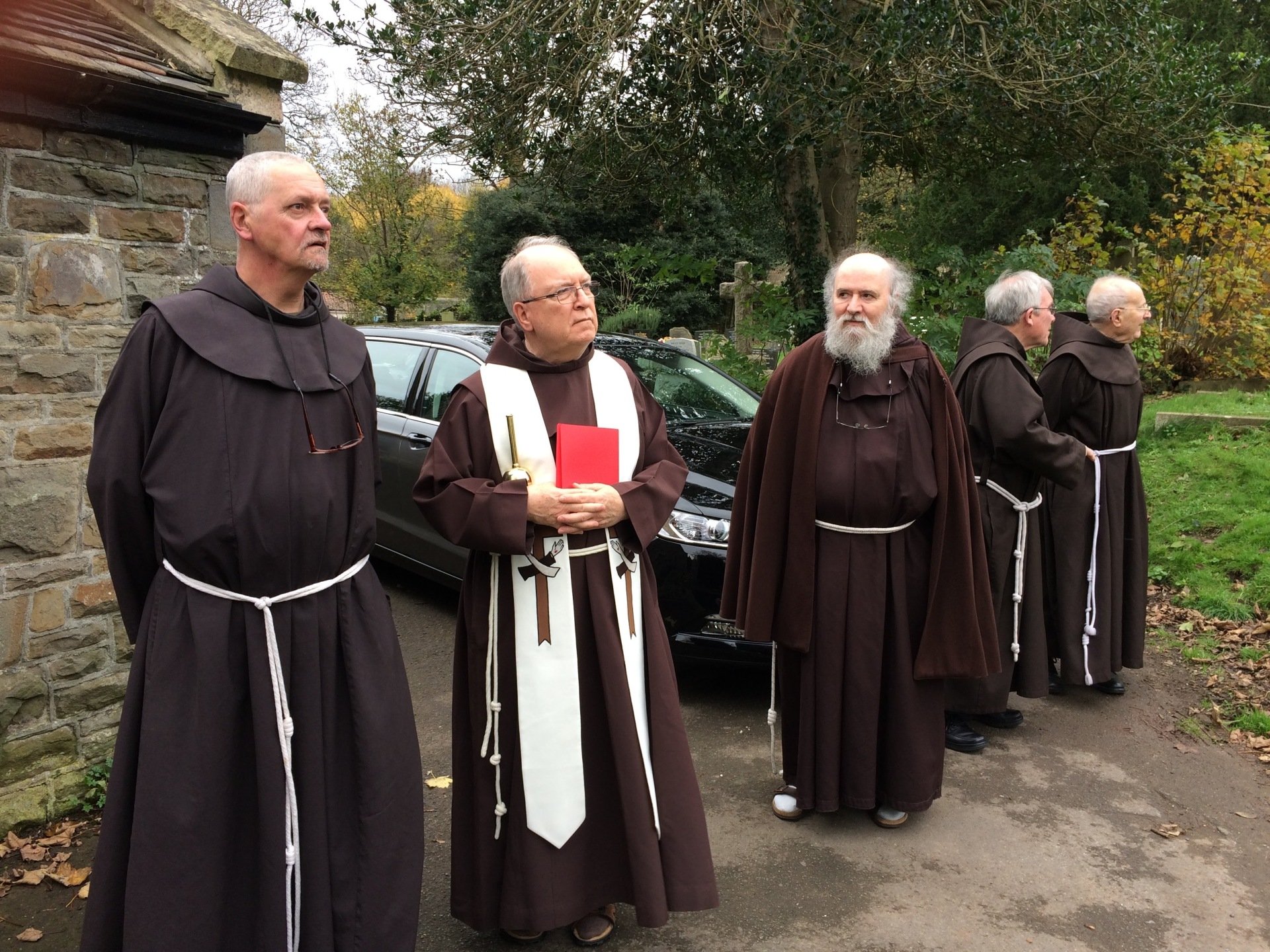Br Patrick Lonsdale Vocation Story
I was born in Preston into a Catholic family in 1948, not long after the establishment of the NHS! I was the first of five children. Our parents were practising Catholics. They attended Mass at English Martyrs’ regularly, and both were involved in the social life of the parish. We all went to the parish primary and junior schools. Having passed the 11+ exam, I went to the Catholic College, which was run by the Jesuits, though the majority of the teachers were lay men and women. I was thus influenced by two types of vocational commitment in those early years, the Diocesan Clergy and the Jesuits. I wasn’t attracted to either – probably because, on the one hand, the parish clergy came in for a lot of criticism because of their perceived ‘worldliness’ – there were four or five priests in the parish, all of whom had cars, though the majority of parishioners couldn’t afford one. On the other hand, the Jesuits had a reputation for being very austere. In later years, and with experience, I have come to admire greatly the men who have pursued both vocations! Perhaps I was looking for a ‘middle way’, though I expect St Francis would lean towards the latter alternative.
While I was discerning my vocation, and talking it over, chiefly with my mother, I came across St Francis. In those days, Religious Orders used to advertise and offer their vocational literature in the Catholic press, and that’s where I came across the Franciscan vocation, and was provoked to read about St Francis. The attraction was immediate. I suppose it was the sense of brotherhood, and the mission of living and preaching the Gospel that drew me. I was 16 when I applied to join the Order, and 17 when I entered the novitiate in 1965. There were no psychological assessments at that time, nor interview panels to impress; we were accepted simply on the recommendation of the Vocations’ Director. The letter from the Provincial to say I was accepted into the Order was addressed to my parents!
In answering this question, I would make these points. Firstly, the vows have given me freedom to pursue the way of becoming human as a follower of Jesus. I feel personally the influence of the words spoken in the Gospels at the time of the Transfiguration of Jesus: ‘This is my Son, the Beloved. Listen to him.’ To listen is to adopt the attitude of a disciple, in the way that Mary of Bethany, for instance, was free to sit at the feet of Jesus, the Master, listening to him. I think this is the fundamental attitude of the Religious, and, of course, of all disciples. There are all sorts of jobs to be done to support the fraternity and its mission, and the struggle is to make sure these do not edge out the necessary time for being with the Lord, that is, for prayer.
From this there follows a second point, namely that at the heart of Franciscan life is a desire to hear the words of the Lord, to contemplate the vision they present, and then to share it with others through preaching and other ministries. In simple ways, St Francis in his own life showed us how to do this – picturing the birth of Jesus in poverty, looking at the Cross in the chapel of San Damiano, and worshipping the Crucified and Risen Lord in the Eucharist. Though I entered the Order thinking I would be a Priest, I had to continue that discernment while in Simple Vows, wondering whether I might better serve the needy as a lay brother. Through spiritual accompaniment and prayer, I decided to seek Ordination. Ministry has not been easy; I feel there has been a diffidence as regards my abilities, but thanks be to God, I have tried to serve the Church and the Order over these years, and I pray this will continue.
A third thing, and something that has thrilled me in my Franciscan vocation, has been the example and inspiration of Pope Francis. The election of a Jesuit Pope, who took the name of our Founder, was a great boost to the Franciscan family, and to me personally. I feel Pope Francis’ encyclical letter, Laudato Sí, has been a rallying call for the whole Church, and particularly for the Franciscan family, to make the care of creation the focal point of our mission today. Many of my Brother Franciscans might disagree with this emphasis, and prefer to focus on the ministries and style of life to which we have grown accustomed. However, as I am writing about why I am still a Friar, I would wish to add this consideration to the other reasons given above for persevering in the Franciscan way of becoming human in today’s world – to be a disciple of Jesus and a brother to all creatures.
May 2020



